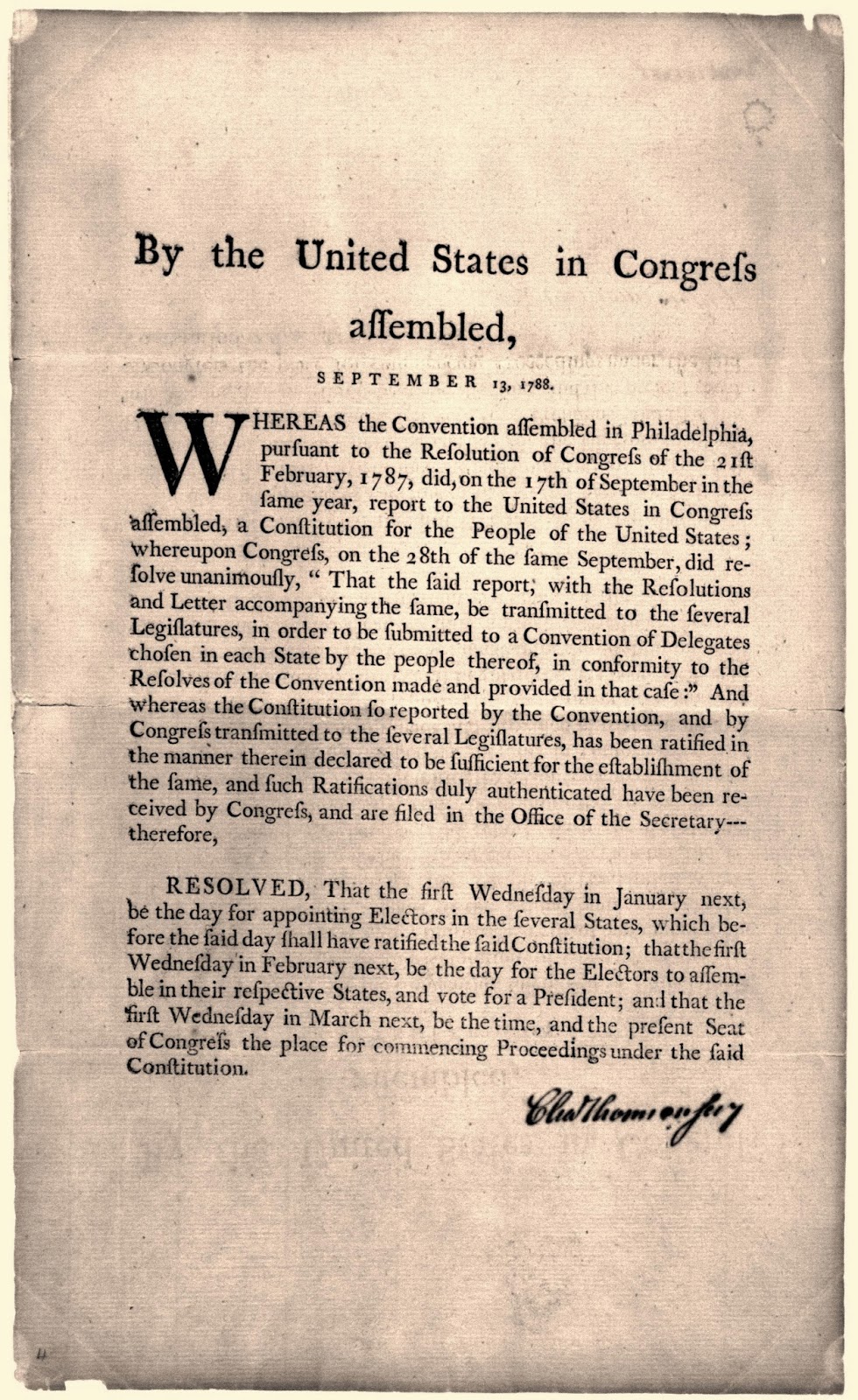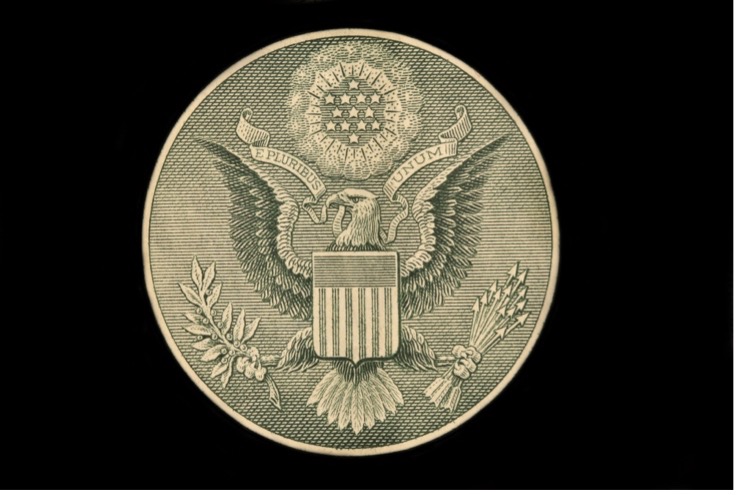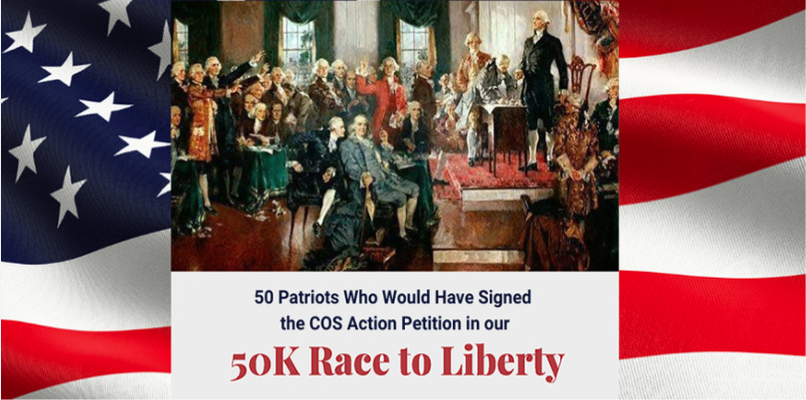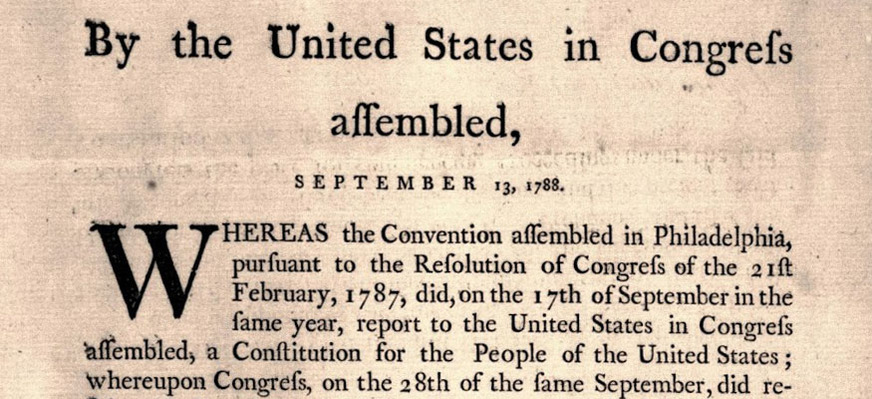In the early years of the United States, when banks were rare and far away, credit was scarce, and credit ratings were yet to be invented, one’s word literally could be as good as gold.
A person could sign a note promising to pay an amount, that is, an IOU, and depending on the public esteem of the one signing, that note could circulate as currency.
Such was the regard held for Charles Thomson, Secretary of the Continental Congress.

Elected to the position in the First Continental Congress in 1774, Thomson carried a great deal of responsibility, performing roles now associated with the Department of State, Secretary of the Senate, and the Clerk of the House of Representatives. In those years before the 1789 Constitution was enacted, Congress was both executive and legislature. There was no President of the United States, but a President of Congress, and the Secretary was an important part of the government.
"Posterity will find your name so honourably connected with the unification of such a multitude of astonishing facts... Your services have been as important, as your patriotism was distinguished." – George Washington
As the only Secretary of the Continental Congress during its 15-year span, Thomson himself was a unifying and stabilizing influence. His careful journals and meticulous minutes of all sessions of Congress, including secret sessions, became “the archives of our nation.”
During the hard times of the Revolution, where battles were lost more often than won and rumors abounded, Thomson published full and honest reports under his signature. The Dunlap broadside, the first public copy of the Declaration of Independence, features only the names John Hancock and Charles Thomson, President and Secretary of Congress as signatories.
The fledgling country, hungry for news of the Revolution in uncertain times, highly anticipated Thomson’s reports from Congress. When a report over his signature showed up in a newspaper, his reputation for honesty and care led people to exclaim, “Here comes the Truth!”
"It's as true as if Charles Thomson's name were on it."

Charles Thomson, Secretary of the Continental Congress.
Thomson’s reputation at the time is such that we should give some consideration to his observations and thoughts about the events of his time.
Like many other Americans, Thomson’s life experience was complex and reflected the special opportunity of America.
After young Charles’ mother died in Ireland, his father brought him and his brothers onboard a ship bound for America. His father died during the voyage, the family’s belongings were stolen, and the brothers were separated on landing. Yet within twenty years, Thomson went from a ten-year-old immigrant Irish orphan on the shores of Delaware, to become a successful and politically connected merchant, as well as a well-regarded intellectual in bustling 18th century Philadelphia.
Before the Revolution, he became a trusted friend of several Indian nations and was admitted to and even assisted in their councils. He became familiar with their politics, customs, and manners, writing a book about his experiences that he published in London with Benjamin Franklin, entitled “An Enquiry into the Causes of the Alienation of the Delaware and Shawanese Indians from the British Interest, and into the Measures taken for recovering their Friendship.”
In a letter to Thomas Jefferson, he encouraged Jefferson not to lose hope and with prophetic words he condemned slavery.
"It grieves me to the soul that there should be such just grounds for your apprehensions respecting the irritation that will be produced in the Southern States by what you have said of slavery. However, I would not have you discouraged.
This is a cancer we must get rid of.
It is a blot on our character that must be wiped out. If it cannot be done by religion, reason, and philosophy, confident I am that it will be one day by blood."
And as with many of the legacies of our country’s founders, many of us take for granted commonplace items of our everyday life. Consider for example, the Great Seal of the United States.
A lone eagle symbolizing the strength of virtue, protected by a shield formed from the red and white stripes of the 13 states supporting the unified blue of Congress. “Out of many, one” is the rallying call, and a constellation of 13 new sovereign states rise to take their place in the firmament of nations. In the talons of the eagle, an offering is made to all: the olive branch of peace is first, but arrows of war are ready at second.

Charles Thomson designed our Great Seal and developed its symbolism imbuing it with the hopes and aspirations of his time, as a reminder to us of the Founders’ vision.
In our own contentious day, we hear many disparage our founding. The Founders are castigated as self-serving tyrants bent on installing a regime to carry forward the privileges of their race and class.
To such slander we may put forward Charles Thomson. Thomson, a central figure throughout the Revolution and Founding of our Country, was a man of unassailable character amongst the people of his day. He was at the center of the founding of our Republic and saw the evil of and condemned slavery. He was a man whose dedication to truth and honesty gained him the trust of councils of Indian nations as well as the trust of a new nation, conceived in revolution and striving for Liberty.
And to remind ourselves, as well as those who defame us, we can point to our Great Seal and say…
“Here Comes the Truth”
Be a Twenty First Century Patriot. Stand up for the truth and sign the petition calling for an Article V Convention of States to fight government overreach, overspending, and politicians overstaying their welcome. Then take action, spread the word, and get everyone you know to sign.
Charles Thomson, at GreatSeal.com







